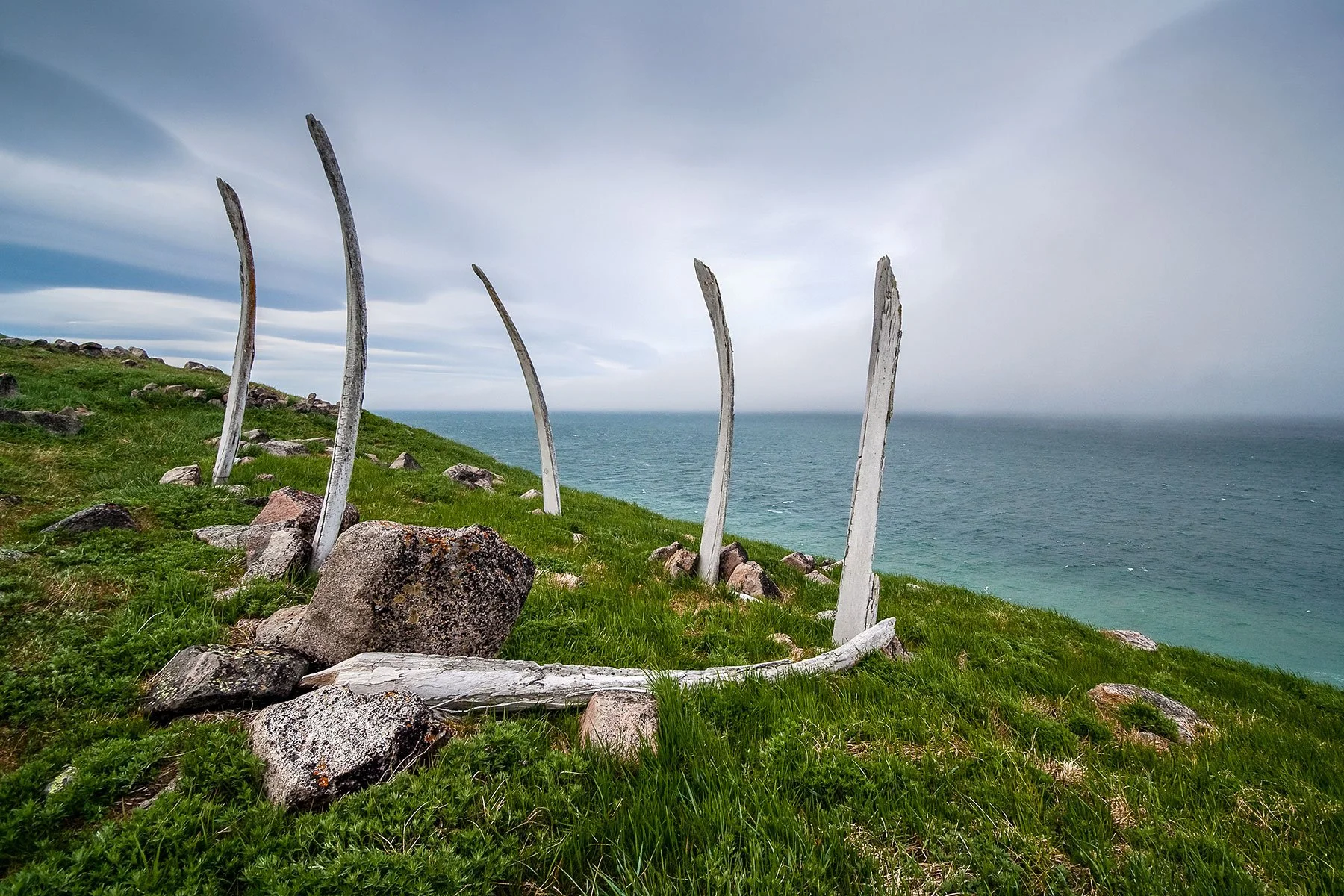BATHSHEBA DEMUTH on a More-Than-Human History /264
Remains of a whale rib structure on the site of the abandoned settlement Naukan on the coast of the Bering Strait; photo by Andrei Stepanov.
How might a bowhead whale tell the history of the Arctic? Grounding us in a history of the Bering Strait that listens deeply to ecology and the more-than-human, Bathsheba Demuth invites us to expand our future and past visions of human society in this episode. Detailing the detriment that the pursuit of constant progress has caused across the world and in the Arctic specifically, Bathsheba reveals the dangers of forgetting to consider the environment and more-than-human actors in our political ideologies. Though backed by different systems of governance, both the USSR and the United States wrought havoc on the Arctic ecosystem and instituted violent regimes of control over Indigenous people in the Arctic. Neither Soviet nor United States domination over the Arctic was complete, though. Bathsheba adds nuance to our understanding of Arctic history by turning our attention towards the undercurrents of resistance – from whales avoiding commercial whaling ships to whalers and miners confronting the violence of the jobs into which they were often forced. Through this, she reminds us that the people, their labor, and the environment are what truly make our world, despite how all-consuming systems of governance and consumption may seem.
Bathsheba then challenges us to move beyond the so-called logic of the slaughterhouse, wherein we are alienated from the ways our energy and goods are produced, and to instead build towards a radically imagined future of empathetic and connected relations. With this, she considers a future outside of apocalyptic visions, rooted in the understanding that the shape of the world today is neither permanent nor pre-destined.
“Wealth is being accumulated by very few people very unjustly and it doesn’t allow for social or ecological flourishing.”
Photo of Bathsheba Demuth by Peter Goldberg
Bathsheba Demuth is an Assistant Professor of History and Environment and Society at Brown University. An environmental historian, she writes and thinks with the lands and seas of the Russian and North American Arctic. Her interest in northern environments and cultures began when she was 18 and moved to the village of Old Crow in the Yukon. For over two years, she mushed huskies, hunted caribou, fished for salmon, and otherwise learned to survive in the taiga and tundra. Her prize-winning first book, Floating Coast: An Environmental History of the Bering Strait (W.W. Norton) was named a Nature Top Ten Book of 2019 and Best Book of 2019 by NPR, Barnes and Noble, Kirkus Reviews, and Library Journal among others. From the archive to the dog sled, she is interested in how the histories of people, ideas, places, and other-than-human species intersect. Her writing on these subjects has appeared in publications from The American Historical Review to The New Yorker.
♫ The music featured in this episode is “Garden of Instruments,” by Eliza Edens, “Dust Bowl Reverie” by Georgia Sackler, and “The Tunnel” by Dana Anastasia.
Bathsheba’s Recommendations
For essays, listens, and general nourishment, the community at Emergence Magazine.
If you want to learn more about Alaska Native life, the podcasts Coffee & Quaq, hosted by Inupiaq reporter Alice Glenn, and On the Land, hosted by Deenaalee Hodgdon, are wonderful.
Alexis Pauline Gumbs is writing the most incredible things about Black feminisms and marine mammals.
And you can never read too much Leanne Betasamosake Simpson or Linda Hogan.
We aim to be a gathering place for ideas and solutions ensuring that the growing body of work that we steward remains accessible to the public. If you want to see us continue, or perhaps are especially moved by the episode you are listening to today, please become a monthly sustaining member through our Patreon or consider making a one-time donation directly to us through our website. To stay up-to-date on our work, sign up for our newsletter.



For The Wild is a slow media organization dedicated to land-based protection, co-liberation, and intersectional storytelling. We are rooted in a paradigm shift away from human supremacy, endless growth, and consumerism. As we dream towards a world of grounded justice and reciprocity, our work highlights impactful stories and deeply-felt meaning making as balms for these times.